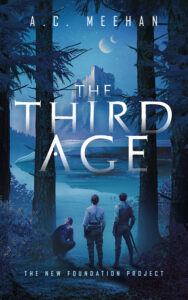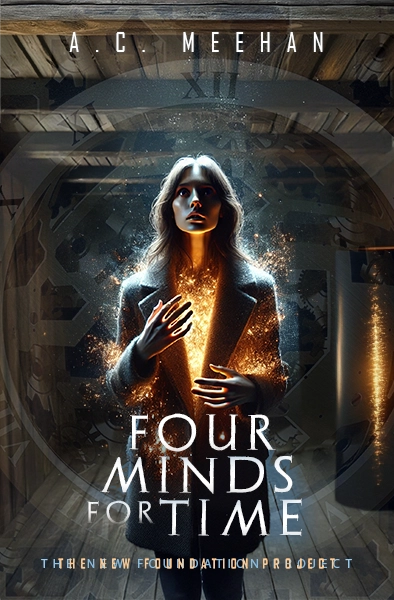Henry James is one of my favorite authors, and one of my very favorite books is The Ambassadors. In certain circles, this is a polarizing statement – people who’ve read any of his novels quickly sort into two groups. I’ve never talked to someone who admitted ambivalence about him.
Even at Kenyon, where I was surrounded by people who took vehement stances on literature fairly regularly, I was a little lonely in my enjoyment. (Except for Professor Perry Lentz, who taught canonical English literature with very old-school demands for mutual respect among students and professor, and for the subject.) I did a semester-long independent study on Henry James, working through several novels, and my enthusiasm never convinced anyone. It’s even worse when talking to a well-read person who didn’t major in English literature.
Here’s the conversation that usually occurs:
Me: I love Henry James.
Unfortunate Person I have cornered into this conversation: Why?!
Me: He’s an introvert’s writer. The stories develop through the psychology of the characters. And the language –
UP: Ugh. It takes him, like, eight pages to make a point. His sentences go on for years. And nothing ever happens. Totally boring.
We never get much further than that.
I understand that not everyone has the patience for internally-driven stories. Many (most?) people want their world action-packed (at least their fictional escapes), and it’s true, overt excitement is limited in The Ambassadors – though there’s a surprising flurry of it toward the end. In James’ novels, people go to art galleries, sit on benches, or stand on balconies to watch passers-by. The stories evolve through the characters’ interactions with daily life. So, I have always taken UP’s point on that, even though I personally enjoy it.
But the UP’s charge that his sentences are too long always puzzled me. I’m too polite to ask the question that’s burning in my head: Then how the heck can you like Faulkner? (Seems like they always do. And/or Joyce.) James at least believes in punctuation, and his long sentences are carefully, beautifully constructed with nary an ambiguous pronoun. So why the disgust?
Cognitive Burden
In grad school – and several situations since – I’ve talked about cognitive burden in the context of digital communications. Make copy easy to scan, write in short snippets, use bullet points, make headlines clear. All this because it is literally harder to read words on screen than on paper.
One reason is “pixels per inch.” The average resolution of ink on paper is 300 dots per inch or DPI. In digital displays, we talk about pixels per inch, PPI, which is calculated by dividing the screen resolution by the screen size. My very-ordinary laptop screen is about 71 PPI, though better models seem to range between 96 and 150 PPI. That doesn’t come close to competing with paper for being easy on the eyes – the brain has to literally connect the dots to identify the shapes as letters, and lower PPI means more work for the brain.
The cognitive burden argument for on-screen reading is that because the brain has to expend energy on grouping dots into letters and letters into words, there is less oomph left for other tasks. Unfortunately, language processing is lumped into “other tasks.”
So in my web editing roles, I’ve stuck to the best practices of short, simple web writing.
Elementary, My Dear Henry
These two thought-trains collided the other day while I was listening to a webinar at work. The instructor talked about PPI, talked about Flesch-Kincaid reading ease scores, talked about overcomplicated words. I have taught all this myself.
But then she brought something new into it for me. She said research shows that people, on average, read at a level that’s about 5 years lower than their actual education. They absolutely can understand complicated text – but they’d rather not bother. For instance, when the gobbledygook writing says “utilize” when “use” would do, the reader translates. (Or, if they are like me, they go into a mild rant about nuances in word use.) The more attention they spend on that, the less likely they are to thoroughly enter into the text.
Example sentences:
From The Ambassadors by Henry James (61 words):
“He liked the ingenuous compatriots – for two or three others soon gathered; he liked the delicate daubs and the free discriminations – involving references indeed, involving enthusiasms and the execrations that made him, as they said, sit up; he liked, above all, the legend of good-humoured poverty, of mutual accommodation fairly raised to the romantic, that he soon read into the scene.”
Go back up
From The Wild Palms by William Faulkner (92 words):
“So now I don’t need to think of them any more because I know the answer to that and I know I can’t change that answer and I don’t think I can change me because the second time I ever saw you I learned what I had read in books but I never had actually believed: that love and suffering are the same thing and that the value of love is the sum of what you have to pay for it and any time you get it cheap you have cheated yourself.”
Go back up
From Mrs. Dalloway by Virginia Wolff (66 words):
“It is half-past eleven, she says, and the sound of St. Margaret’s glides into the recesses of the heart and buries itself in ring after ring of sound, like something alive which wants to confide itself, to disperse itself, to be, with a tremor of delight, at rest – like Clarissa herself, thought Peter Walsh, coming down the stairs on the stroke of the hour in white.”
Go back up



